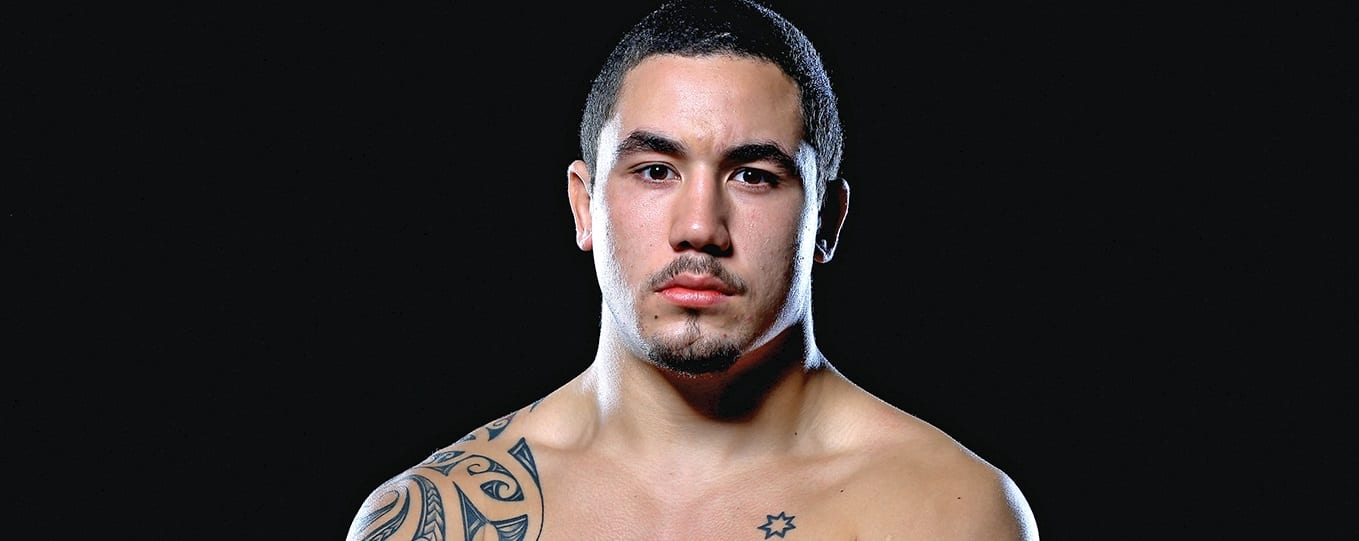UFC middleweight champion Robert Whittaker has now gone ten brutal rounds with Yoel Romero in his career.
Both times, Whittaker has emerged victorious, but both times it was a hard fought and hugely challenging experience. At UFC 225, throughout their back and forth contest, it seemed on multiple occasions the champion was on the verge of defeat, only to fight back and earn a (split) decision victory in the judges eyes.
But while Whittaker takes pride in his win over the Cuban, he can’t help but note something felt different about Romero the second time they traded blows — particularly given Romero’s state just a day prior to fight night.
“Whatever Romero’s rehydration plan was, I would like to get on that,” Whittaker said, speaking on the Grange TV podcast. “Because he looked huge. From the skeleton I saw the day before and him missing [weight] — and it looked like he was gonna die — to him hopping back in that Octagon was like two different guys.
“Whatever he’s hydrating on, I would like to know, so I can also hydrate on that. Because it turns you superhuman, just about. When I was punching and kicking him, it felt like metal. Like a dude made out of concrete. It was ridiculous. And I fought him a year ago, and he didn’t feel like concrete. Not like that. His hydration plan worked pretty well, I guess.”
Whittaker isn’t the first opponent of Romero’s to mention how rough it felt to strike him. After losing their respective bout earlier this year, Luke Rockhold stated that “kicking his leg felt like fucking cement.” For Whittaker, it’s an interesting change from when he and Romero first met at UFC 213 last July.
“I’m pretty sure I hit hard,” Whittaker said. “You can ask all my other opponents if I hit hard. I’ve stopped dudes that don’t get stopped. I don’t know. He’s a tough guy, and like I mentioned before, he’s a top calibre athlete. But for him to come back the way he did, and for him to feel so differently and to perform so differently than he did a year ago — because lets not forget I have fought him before. I have experienced his shots, I’ve experienced landing shots on him, I’ve experienced him, fighting him before.
“For him to make those changes physically and athletically in a year at the age of 40, 41? I’m leaving that down to nothing more than magic, honestly. I can’t see you jumping on a special diet filled with kale and good fruits and then performing like that.”
While Whittaker didn’t outright accuse Romero of having taken something in the months between their contests, he did go on to discuss what he sees are the issues with the current testing regime implemented by the UFC’s anti-doping partner, USADA.
“The problem with the testing procedure at the moment — and they’re doing their best, I’m sure they are — but it has too many holes in it,” Whittaker said. “One, they can only test for what they know. So if there’s a substance out there, or a drug, or a performance enhancing drug that hasn’t been popped before and been proven to give benefits, they can’t test for it. So lets say someone develops a new performance enhancing drug not using chemicals that [testers] can detect, it’s not going to pop.
“Secondly, it’s random testing. So they can test you at any time, any given moment. But if you’re not home when they arrive, they give you a warning. Like that’s it. … So if you’re juicing, or if you’re using any sort of PEDs, you get essentially two out of jail free cards. Which I think is ridiculous. And that’s if you get testing. Remember, it’s random. You might not get tested. Because I’ve also noticed I’m getting much more tested now than when I was in the lower rankings. It wasn’t until I made top twenty, top twelve, top fifteen that I started getting tested at all.
“Then for instance, which blew my mind, when I went to the fight I got tested as soon as we walked in. And you don’t always, but I did. And then after the fight I went to the hospital to get my hand checked out, they didn’t test me after the fight. I don’t know if that was a lapse in concentration, but that surprised me. A fighter or an athlete could take any sort of — not only performance enhancing drug — but any sort of drug to perk themselves up, give themselves extra energy. … I don’t know if that was a loophole or if they just missed it.”




